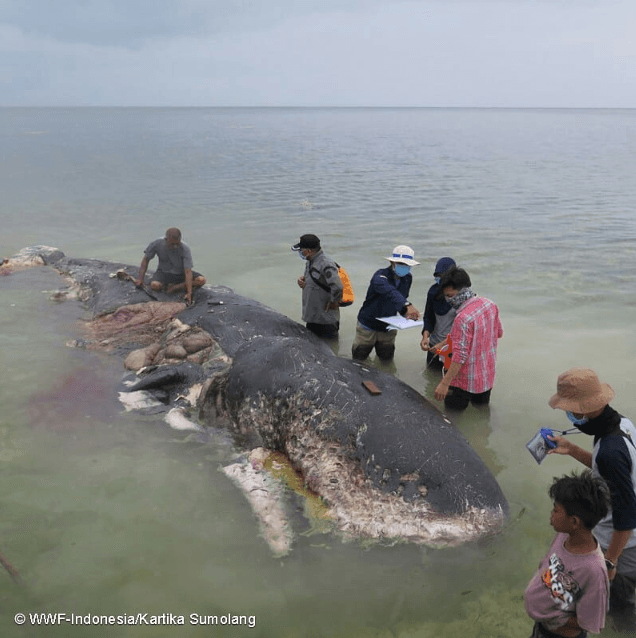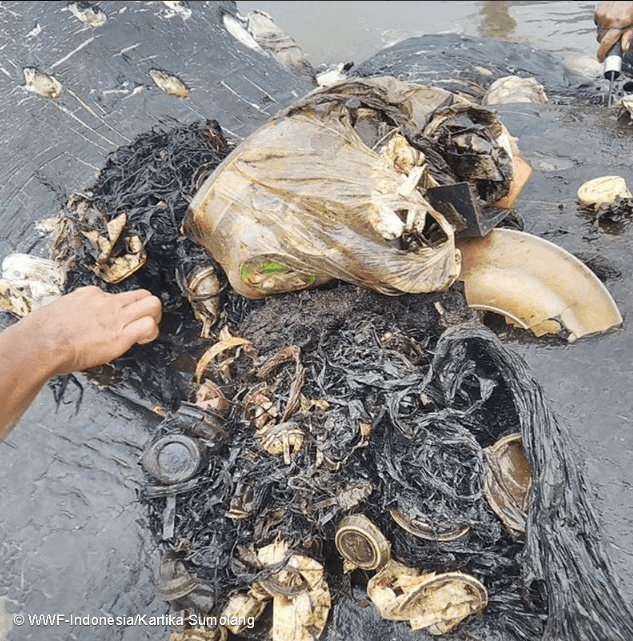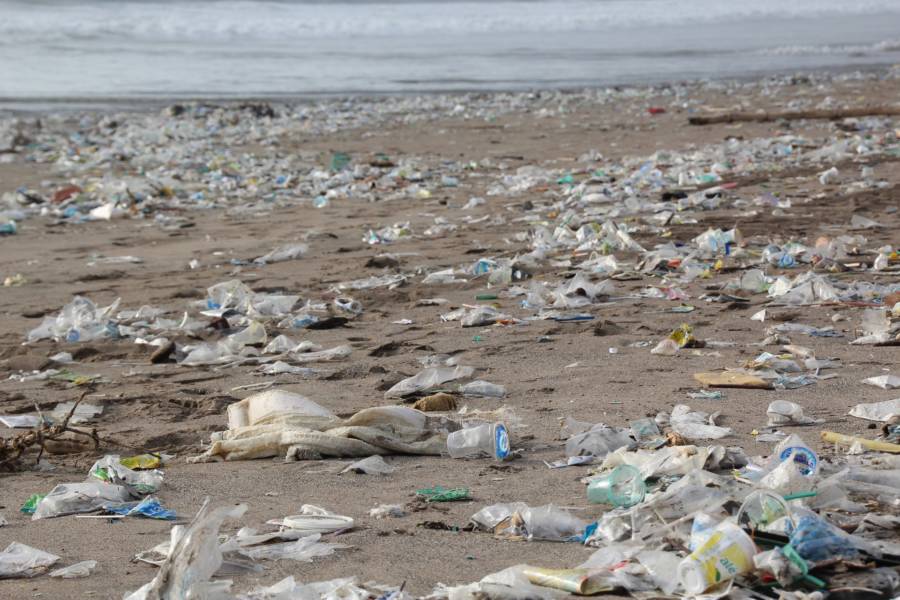Approximately 13 pounds of plastic waste was found in the whale's stomach and likely contributed to the animal's death.

WWF/Twitter
The sperm whale filled with plastic that washed up in Indonesia.
In a tragic incident that indicates just how polluted Earth’s oceans are, a dead whale that washed ashore in Indonesia was found to have a significant amount of plastic in its stomach, which might have significantly contributed to its ultimate death.
The sperm whale was discovered on Nov. 19 by rescuers from Wakatobi National Park after receiving a report from environmentalists that villagers had surrounded the washed-up whale and started to butcher its rotting carcass.
USA Today reports that the whale measured 9.5 meters (roughly 31 feet) long. Wakatobi National Park chief Heri Santoso said that upon inspection from wildlife conservation group WWF and the park’s conservation academy, a multitude of plastic products were found in the whale’s stomach.
A total of approximately 5.9 kilograms (about 13 pounds) of plastic waste were found in the whale’s stomach.
Researchers broke down the specific types of plastic products that were found: 15 plastic cups, four plastic bottles, 25 plastic bags, 2 flip-flops, a nylon sack and more than 1,000 other assorted pieces of plastic were all present in the animal’s belly.

WWF/TwitterThe plastic waste found inside the sperm whale’s stomach.
And researchers believe that it’s likely that these products lead the whale to its untimely death.
“Although we have not been able to deduce the cause of death, the facts that we see are truly awful,” said Dwi Suprapti, a marine species conservation coordinator at WWF Indonesia. Suprapti noted that it will be impossible to determine if plastic was the exact cause of the whale’s death due to its significantly decayed state.
Indonesia is the second-largest plastic polluter next to China. The population of 260 million produces 3.2 million tons of mismanaged plastic waste a year, of which 1.29 million tons ends up in the ocean, according to a study published in the journal Science.
A 2015 report from the Ocean Conservancy and the McKinsey Center for Business and Environment concluded that over 50 percent of the plastic polluting the world’s oceans comes from China, Indonesia, the Philippines, Thailand, and Vietnam.

PixabayPlastic waste pollution on the shore of a beach.
That same report also states that a 65 percent reduction of plastic waste produced from these five Asian nations would lead to a 45 percent reduction worldwide — and Indonesia’s government is taking responsibility for their share of the problem quite seriously.
Indonesia’s coordinating minister of maritime affairs Luhut Binsar Pandjaitan says the discovery of this whale is a massive wake-up call for his government.
“I’m so sad to hear this,” said Pandjaitan. “It is possible that many other marine animals are also contaminated with plastic waste and this is very dangerous for our lives.”
Pandjaitan reportedly recently campaigned to use less plastic and that this tragic incident should raise public awareness about the importance of using less plastic, as well as incite the Indonesian government to create stricter laws that will protect the ocean.
So far, Pandjaitan has urged supermarkets and other stores to not provide plastic bags to their customers and introducing lessons that teach students in the country about the dangers of pollution into school curriculums.
The government has a goal to reduce the use of plastic in Indonesia by 70 percent by the year 2025.
Panjaitan believes that the reduction of plastic bags in stores and proper pollution education will enable Indonesia to reach this lofty goal.
“This big ambition can be achieved if people learn to understand that plastic waste is a common enemy,” he told The Associated Press.
Next, read this story about a Russian “whale jail” that’s trapped over 100 whales. Then, check out this story about a different whale that washed up in Spain with over 60 pounds of plastic in its stomach.





